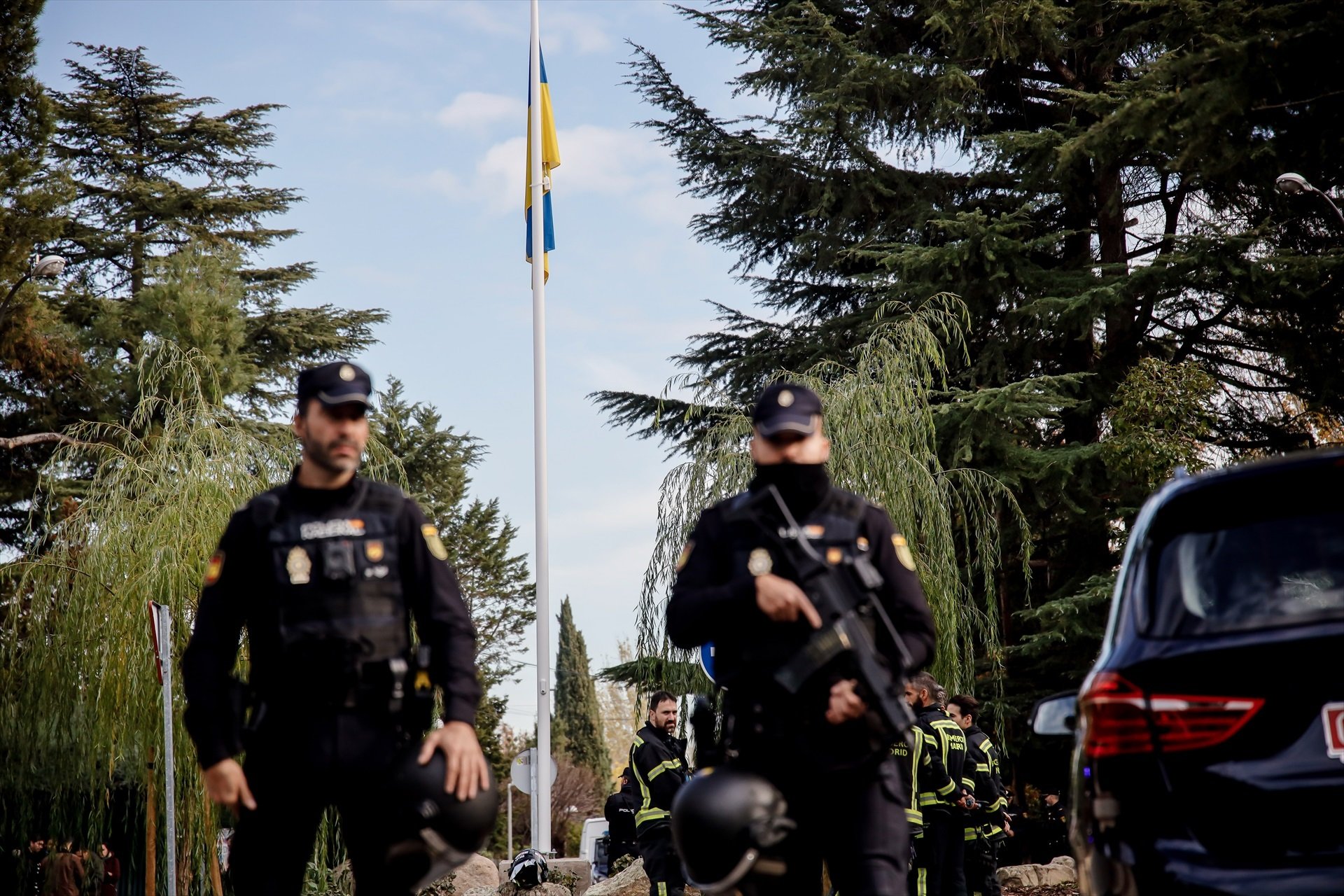Police have intercepted a new batch of envelopes containing animal eyes that had been addressed to Ukrainian diplomatic offices in Spain, specifically, to the consulates in Barcelona and Malaga and the embassy in Madrid, according to Spanish National Police sources. It was this Monday morning when these three suspicious envelopes were detected and intercepted by the security systems of the Post Office. The police ruled out the presence of explosive substances, verifying that what they contained were animal eyes.
Last week, envelopes containing animal eyes were intercepted at the Ukrainian embassy in Madrid and in other diplomatic offices of that country. A spokesperson for the Ukraine foreign ministry, Oleg Nikolenko, confirmed the confiscation of these three envelopes. With these three packets, the total number of dangerous letters sent to Ukrainian diplomatic offices across Europe has reached 21. Nevertheless, Nikolenko stresses that his country's diplomats will not be intimidated by these threats. "We continue to work effectively to protect Ukraine from the enemy and for our victory," he said.
Specifically, "bloody packages" containing animal body parts, mostly eyes, have now been detected in five European countries, according to the war-torn country's foreign ministry. Over the past few days, Ukrainian diplomatic institutions around the world have been the subject of what they described as acts of "terror and intimidation" involving Russia. Packages have arrived reached the country's embassies in Hungary, the Netherlands, Poland, Croatia and Italy, although suspicious shipments were also reported at the country's consulates in Poland, the Czech Republic and Italy. "The packages themselves were wet with a liquid, and had a characteristic stench. We are studying the meaning of these messages," spokesperson Oleg Nikolenko said in a statement.
In Spain last week, six packages which were considered threatening or dangerous were identified. The first letter with suspicious characteristics was addressed to the Spanish prime minister, Pedro Sánchez, and that was sent on November 24th. On Wednesday, November 28th, the Ukrainian embassy in Madrid received a letter addressed to the ambassador containing explosive material. It did not reach the hands of the ambassador, but detonated when opened by one of the workers, who suffered minor injuries to one hand. On Friday of the same week, another suspicious package was detected at the same embassy, and when security workers inspected it, they noted that it was not an explosive, but animal eyes.
Apart from the explosive letter that injured the Ukrainian embassy employee, none of the other five explosive letters caused personal or material damage as they were intercepted in time. They were received by an arms company in Zaragoza, the Spanish government's Moncloa palace - this one arrived earlier than the others, but was not communicated publicly - by defence minister Margarita Robles, by the United States embassy in Madrid and at the Spanish air base at Torrejón de Ardoz, near Madrid. Most of them were detonated by security forces, but one letter, the package that was received at the air base, was recovered intact, a fact that will be used to extract new evidence to locate reach the sender.

